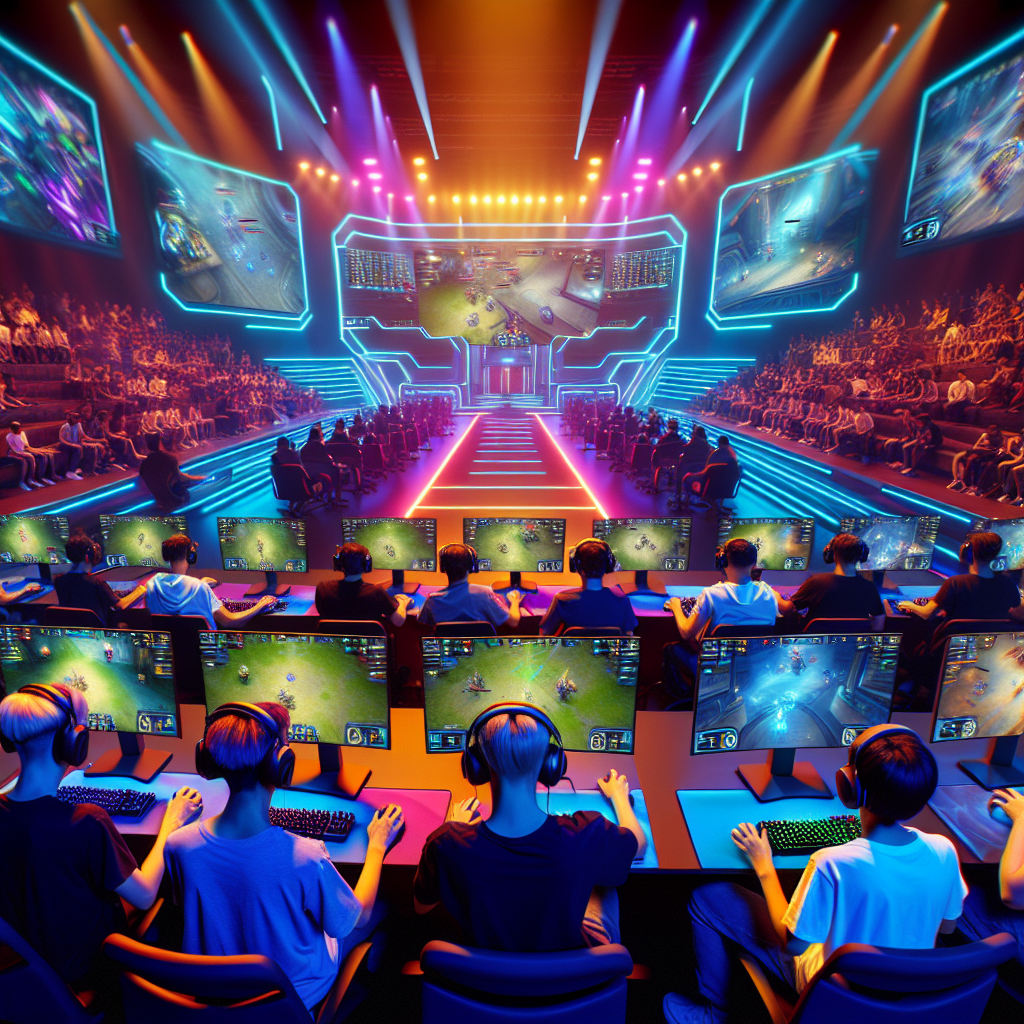Over the past few years, esports has exploded onto the scene, capturing the attention of millions of fans worldwide. What was once considered a niche hobby for dedicated gamers has now become a multi-billion dollar industry, with professional players competing for massive prize pools in front of sold-out arenas and millions of online viewers.
So, what exactly is esports? Simply put, esports is competitive video gaming. Players compete in organized tournaments and leagues, often in popular games like League of Legends, Dota 2, Counter-Strike: Global Offensive, and Overwatch. These events can range from small local competitions to massive international tournaments, with players from all over the world vying for glory and cash prizes.
The rise of esports can be attributed to a number of factors. The growth of online streaming platforms like Twitch and YouTube has made it easier than ever for fans to watch their favorite players in action. The increasing popularity of multiplayer online games has also played a role, with titles like Fortnite and PUBG attracting millions of players and viewers.
But perhaps the biggest factor driving the growth of esports is the rise of professional gaming organizations and leagues. Companies like ESL, Blizzard, and Riot Games have invested heavily in building competitive gaming scenes around their flagship titles, creating a structured environment for players to compete and fans to follow.
In recent years, the esports industry has seen explosive growth, with revenues expected to reach $1.1 billion in 2020. Major brands like Coca-Cola, Intel, and Red Bull have all jumped on the esports bandwagon, sponsoring teams and events in an effort to reach the coveted millennial and Gen Z demographics.
Esports has also begun to make inroads into traditional sports, with teams like the Golden State Warriors and the Dallas Cowboys investing in esports franchises. This crossover between traditional sports and esports has helped to legitimize competitive gaming in the eyes of mainstream audiences, further driving its popularity.
As esports continues to grow, some have even begun to question whether it could one day rival traditional sports in terms of popularity and viewership. While that may still be a ways off, there’s no denying that esports has firmly established itself as a major player in the world of entertainment.
So whether you’re a hardcore gamer or a casual fan, there’s never been a better time to get involved in the world of esports. With more tournaments, leagues, and events popping up all the time, there’s no shortage of opportunities to join in on the competitive gaming phenomenon.


Leave a Reply